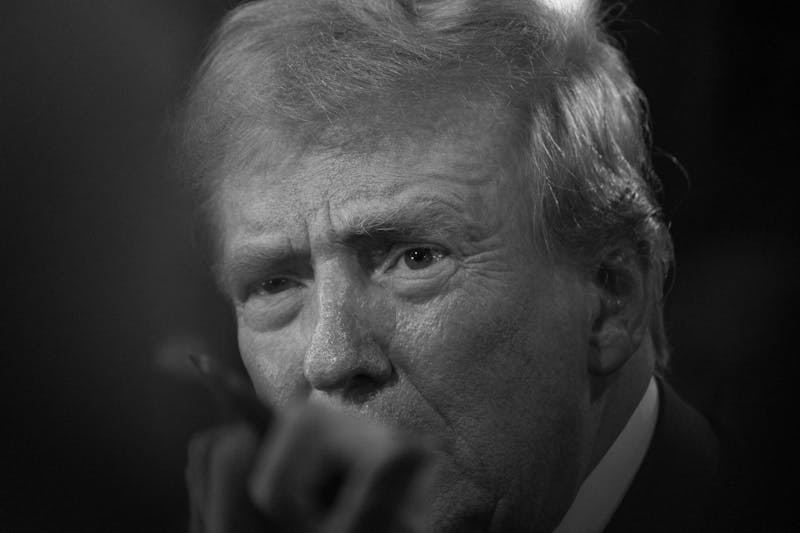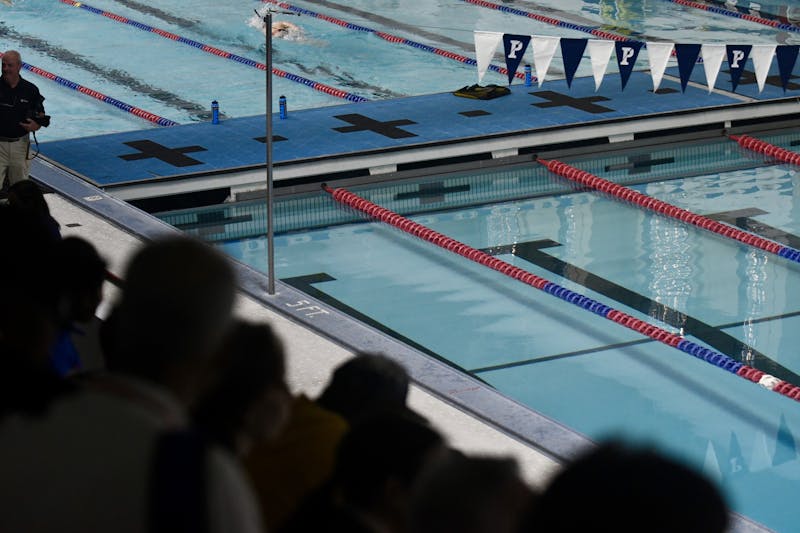
The American and Penn flags flew at half-mast on Irvine Auditorium's stage as the University community trickled in solemnly and took their seats.
By the end of the hour of communal prayer, moments of silence, stirring homilies and moving music at yesterday's University-wide memorial service, there were few dry eyes in the audience.
Irvine, which holds an audience of almost 1,300, was overwhelmed with visitors yesterday afternoon as students, faculty and staff came together to mourn the victims of Tuesday's gruesome and unprecedented terrorist assault.
The service, led by Chaplain William Gipson, represented a diversity of religious backgrounds, featuring speakers Rabbi Howard Alpert, Imam Kenneth Nurad-Din and Father Charles Pfeffer.
All three conveyed a similar message -- look inside for guidance and join forces as a community for support.
"All of us are asking for peace," Nurad-Din said. "We need to establish peace within ourselves first."
University President Judith Rodin also spoke at the service and expressed her condolences.
"Now we have learned the hard way that we can take nothing for granted," Rodin said.
However, standing before a bouquet of bright yellow sunflowers, Rodin shared her confidence that the Penn community will overcome the tragedy.
"We come together to mourn," Rodin said. "We stand together to heal. We leave together a community."
Students left behind CNN, homework and their usual afternoon activities and attended the service for a number of reasons -- but most of all, they said they gained comfort from grieving with one another.
"It was definitely an emotional outlet," College sophomore Ana-Lauren Reiss said. "This helps us cope and reminds us of what's really important in life."
The service was accompanied by musical selections by singing groups The Inspiration and Quaker Notes as well as flutist Kristen Wermuth, a Wharton senior.
Within Irvine, not a single seat went without an occupant. Any unfortunate latecomers had to spend the hour outside the auditorium, sitting in the chairs and on the railings around Wynn Commons.
"We waited in line to get in, and they turned us away," explained Ravi Jolly, a Wharton sophomore. "They wouldn't even let us stand [inside]."
However, listening to the service through the outdoor speakers didn't detract from Jolly's experience.
Jolly thought that alternating between succinct speeches, moments of silence and musical interludes was an appropriate and effective way to conduct the event.
"I think there's been too much talk on the news -- we need to take time out to reflect and pray," Jolly said. "I hadn't done that yet. I hadn't had a quiet moment."
Yet while the size of the audience forced some outside, College sophomore Meredith Gamer felt the mere number of attendees was, in itself, a comfort.
"I was really struck by how many people showed up," Gamer said. "It was nice to come together as a community. I spent yesterday in my room trying to deal with it individually."
After about an hour of reflection, Gipson closed the service, emphasizing the need for togetherness during a time of hardship.
"As we let our own light shine, we unconsciously give other people permission to do the same," said Gipson, quoting Nelson Mandela. "As we are liberated from our own fear, our presence automatically liberates others."
For many Penn students, yesterday's attack hit close to home, both literally and figuratively; many hail from the New York or Washington areas, and hundreds of others have lived or worked in one of the two cities. But even for those who most felt the attacks, yesterday's service helped bring a sense of peace.
College sophomore David Herman was in New York during the attack.
"I saw the fire, I saw the hole and I saw the buildings collapse," he said.
Returning to Penn, and attending the service, was an encouraging step toward comfort for Herman.
"Tragedy of this size tends to bring people together," Herman said. "It's important to get support from others. The service was very moving."
"The most touching part was probably the music," he added.
Following the memorial service, many headed to Houston Hall, where lively conversation and good food indicated that the Penn student body was slowly but surely healing from the tragedy.
After the service, Rodin said that Penn's campus has been unique in its solidarity during this difficult time.
"This is what makes Penn special," Rodin said. "I've been struck by how few other universities have had this level of support."
Provost Robert Barchi, who also attended the service, said that gathering as a group is important in the healing process.
"Whenever there's an event of this magnitude, we have to share it," Barchi said.
Barchi felt the representation of three religions at the service --Judaism, Islam and Christianity -- was critical in unifying the campus as a support system, especially considering the diversity of the service attendees.
The attack "wasn't something done to a particular group," Barchi said. "It was done to all of us."
He added that the service was an integral step in surmounting the present hardship.
"We need to get back to life."
The Daily Pennsylvanian is an independent, student-run newspaper. Please consider making a donation to support the coverage that shapes the University. Your generosity ensures a future of strong journalism at Penn.
DonatePlease note All comments are eligible for publication in The Daily Pennsylvanian.







